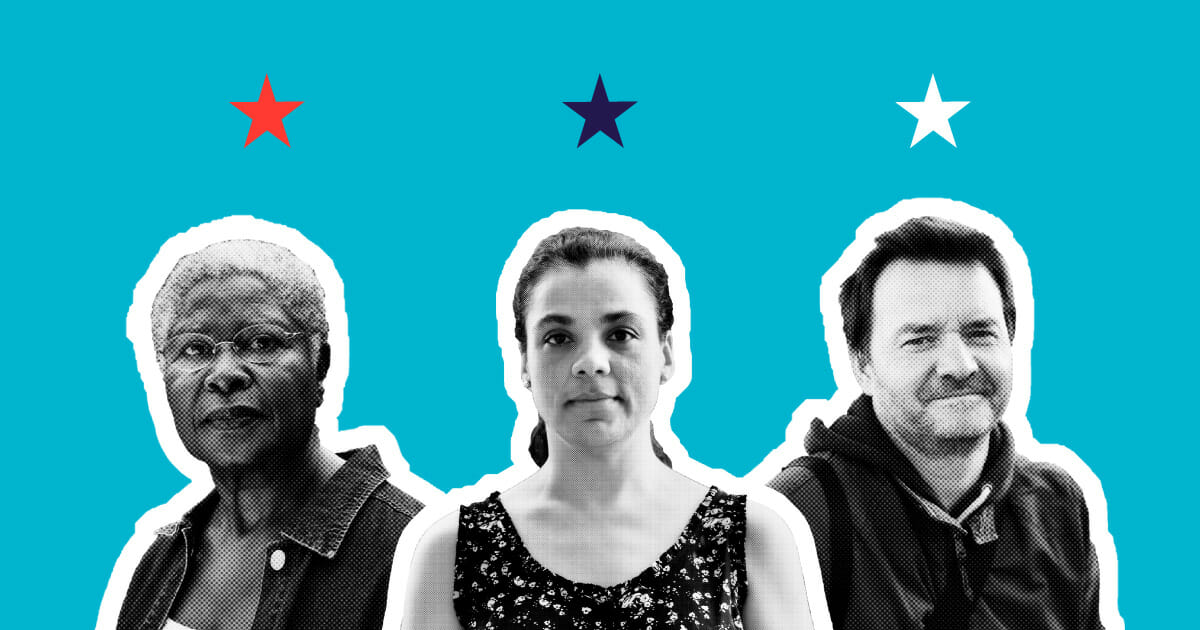Research
Listening Loudly in Order to Develop Durable, People-Centered Policy Solutions

Coming through this pandemic, we have the opportunity as a Nation to pave a path to a better health care system that is built based on people’s needs and not partisan politics. At United States of Care our approach hasn’t changed – we are still actively engaging and listening to people’s needs, worries and experiences – just like we did before the pandemic. We are hosting virtual one-on-one and group conversations in communities; we continue to monitor and summarize trends in public opinion and conduct informal surveys. This is done to inform the policy priorities we recommend to federal and state policymakers, and ensure they are centered around people.
In my conversations with people over the last few weeks, the focus is on the immediate health and financial crisis; how individuals and loved ones are doing; and what will be the pandemic’s impact on our individual and collective future.
These are my learnings after a few weeks of talking to people during the pandemic:
At a time when so much is unknown, we are all concerned about protecting and providing for ourselves and our families. We want to know that we are receiving accurate information and recommendations on staying safe during the pandemic. We are worried about work, and the financial impact, and medical well-being for ourselves and our families; we are mindful of the needs of the vulnerable in our communities. And we want to be assured that we have a reliable health care system that is adequately resourced and supports front-line workers.
In my conversations with people across the country, we talked about what daily life looks like right now, our anxieties, identities and connections, and those we’ve lost. About job security, the worry or reality of being furloughed, and how this affects our health insurance coverage. We talk about the challenges facing essential workers, how long this will continue, and what will happen if our country ‘opens up’ too quickly. One person said:
I’m a nurse practitioner working with patients infected with COVID-19. I’m terrified that I will bring it home to my family. I’m overwhelmed by the work. It’s intense. I’m anxious that it is going to get worse before it gets better and [that other] people [want] to get back to work, visit friends and family, etc. Meanwhile I’m risking my life and my family’s life to take care of the sickest people I’ve ever seen.
Collectively, we all seem to be experiencing waves of emotions, which are often contradictory, where it “feels like a rollercoaster ride from deep gratitude to overwhelming fear,” as one person told me. Others, especially those who have experienced loss, talk about the desire to “grieve together as a family someday.” As people talk about balancing fear, stress, gratitude and boredom, it is usually with a sense of the unknown. Someone shared: “I am grateful my wife and I are still employed. I am anxious that could change. I am overwhelmed with parenting and with work and everything else.” Often people talk about trying to balance all of their feelings and gratitude with the knowledge of all the pain and suffering that is occurring across the country.
These conversations are also filled with the notion of what makes us resilient and our society’s ability to shoulder these abrupt changes, and there is a hope that we grow stronger. One person said, “I think about small business owners who have to shut down forever and how we can better prepare for times of crisis in the future.” When we asked someone what gave them hope, they said “that even if it all goes to hell–we will rebuild and my kids and grandkids will be better for it.” Others have concerns about what our society might look like going forward, and the impact on future generations’ livelihoods: “I just started my family a year ago with the birth of my son. I am extremely fortunate to have a good job that provides great health care. As the economy contracts for the second time in my adult life, and I see my friends and without jobs or health care, I worry about the future for my children and myself.”

Additionally, people continue to notice that COVID-19 is shining a light on historical inequities in our care system and the underlying disparity and access issues, especially for the most vulnerable. I wrote about this a few weeks ago, and joined a podcast with one of our Voices of Real Life Council members, Dr. Liza Fitzpatrick, about the urgency to focus on the specific needs of our marginalized and other vulnerable communities. As one person told me, she is upset but not surprised that there are more COVID-related deaths in communities of color given the historical inequities and distrust she feels her community has with the medical system. On top of that, she mentioned “we are the ones who usually can’t work from home.”
It is clear that our state and government representatives need to listen loudly in order to develop durable, people-centered policy solutions. These solutions should address not only the short-term challenges, but also designed to remove the systemic barriers in our current health care system. People need to feel they’ve been heard and that the health care system is there to support them.
#VoicesOfRealLife Series
This global pandemic is both isolating and bringing us together in new ways. As a part of our ongoing #VoicesOfRealLife series, we are connecting with folks across the country to share how COVID-19 is impacting their lives, their work, and their communities. Take a look at some of the most recent stories.